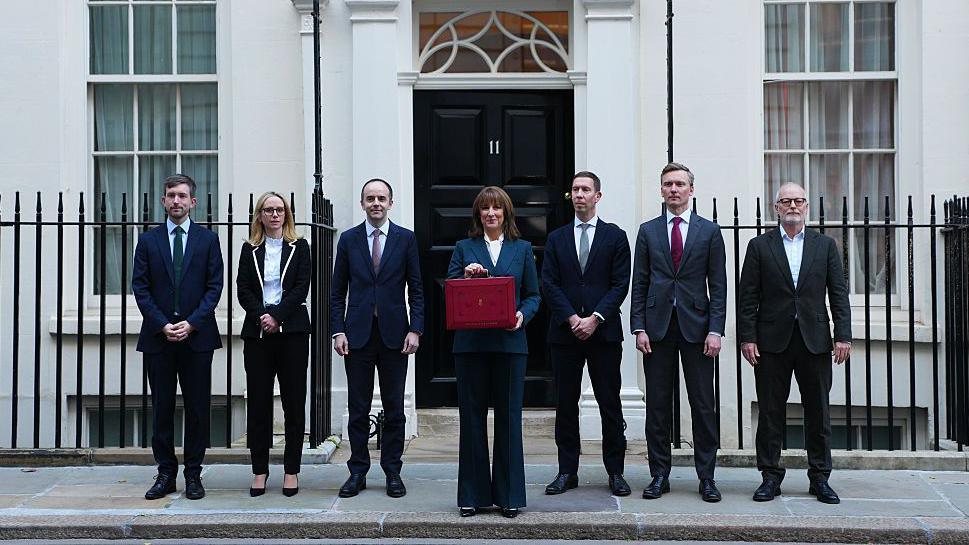Councils say budget fails to address SEND 'crisis'

The government's spending plan was outlined by Chancellor Rachel Reeves on Wednesday
- Published
Councillors have criticised the government's autumn budget for failing to address "unsustainable pressure" on special educational needs and disability (SEND) support.
Liberal Democrat councillor Mike Cox, from Bournemouth Christchurch and Poole (BCP) Council, said he was "disappointed" the "crisis" was not mentioned.
It comes after the government's spending plan was outlined by Chancellor Rachel Reeves on Wednesday.
The government has announced that SEND provision will be fully absorbed in its overall budget from 2028/29.
More than 1.7 million pupils, external in England have special educational needs.
Councils receive government funding primarily from the Dedicated Schools Grant (DSG), which is used to pay for schools, nurseries and SEND provisions.
However the rising costs of SEND support have forced local authorities across the country into hundreds of millions of pounds of debt.
Mr Cox, deputy leader for BCP Council, said the budget was "a missed opportunity to immediately return the SEND system to financial sustainability".
He acknowledged the changes proposed in 2028-29 but said: "This does not solve the fundamental issues at the heart of this crisis.
"It also still relies on councils continuing to fund an unsustainable service for the next two years.
"In the meantime, this creates immense pressure on our budget, and ultimately affects the services we offer our residents of Bournemouth, Christchurch and Poole."
Grants awarded to tackle cost-of-living crisis
- Published14 hours ago
Former PC's failures 'put victims at further risk'
- Published8 hours ago
'I was left alone when my mum was sent to prison'
- Published9 hours ago
Councils have to borrow money to cover the gap between what they receive for SEND and what it costs.
BCP Council said this borrowing leads to costs of £10m a year in interest payments.
On Tuesday, Leader of BCP Council Millie Earl wrote to, external the government warning about the hole in the council's finances.
She said the local authority was spending far more than it receives for SEND services, with an overspend of £69.8m for this year alone.
'A sticking-plaster'
The DSG Statutory Override, introduced in 2020, has been extended until 2027/28.
It means even if a council has a large overspend on SEND funding, that deficit does not count against its overall financial position when assessing whether the council can set a balanced budget, which prevents it from becoming insolvent.
Conservative councillor Nick Adams-King, leader of Hampshire County Council, called this "a sticking plaster" and the budget was "even more disappointing than expected".
"Historic SEND deficits remain unresolved, and Hampshire is left waiting on the Local Government Finance Settlement for detail," he said.
"Families and schools need clarity now, not promises of future envelopes."
A government spokesperson said: "We have made £69bn available for council finances including more than £2bn for these three councils combined, so they can deliver better public services for local people in the South.
"This is alongside fixing the unfair funding system we inherited.
"We will set out our full plans to reform the SEND system through the Schools White Paper early next year."
Get in touch
Do you have a story BBC Dorset should cover?
- Published3 October

- Published3 days ago

- Published22 October
